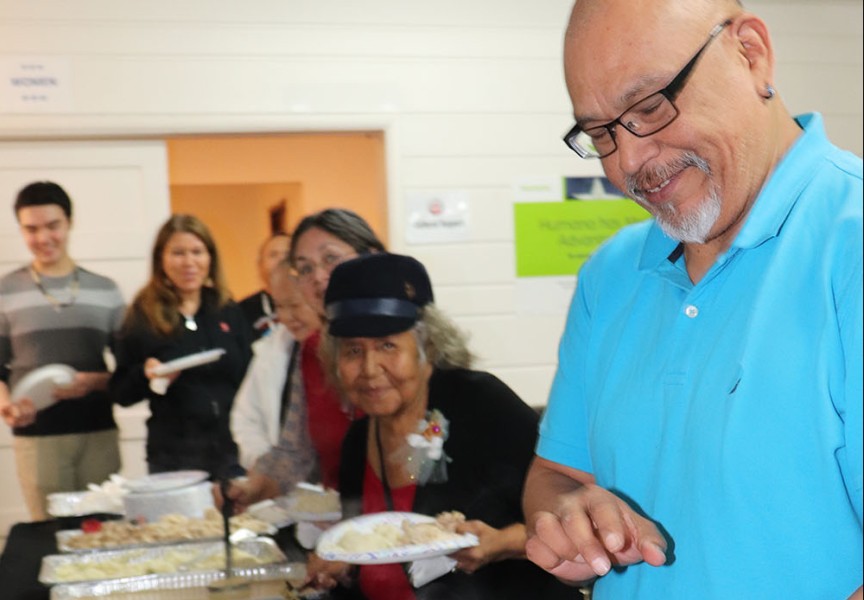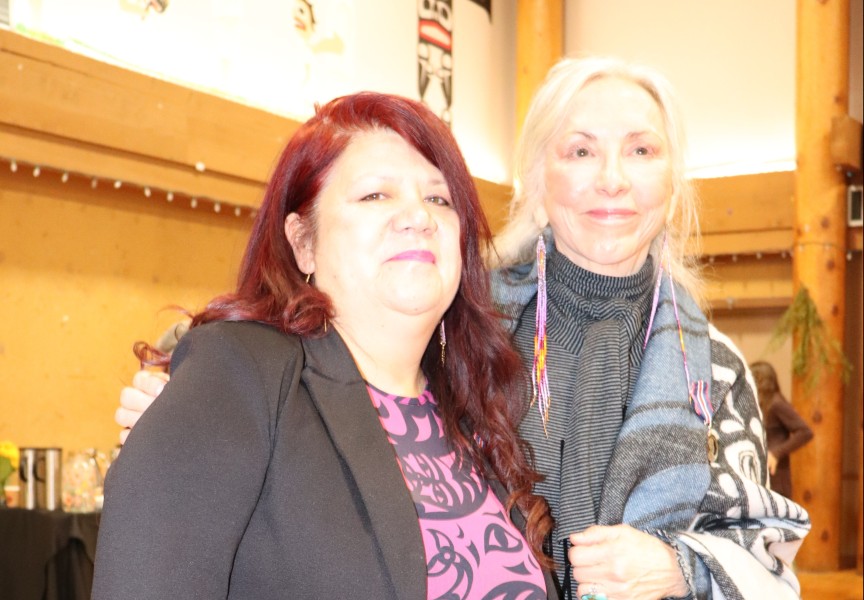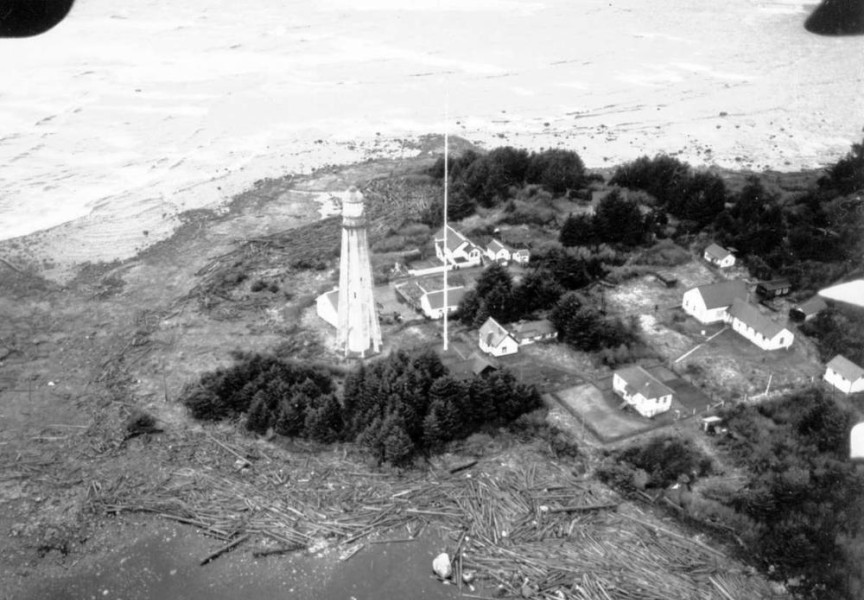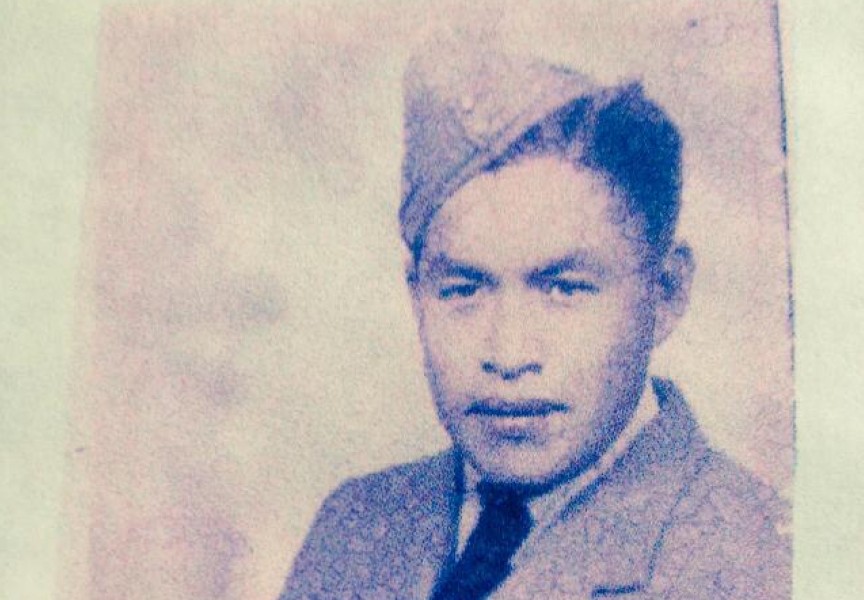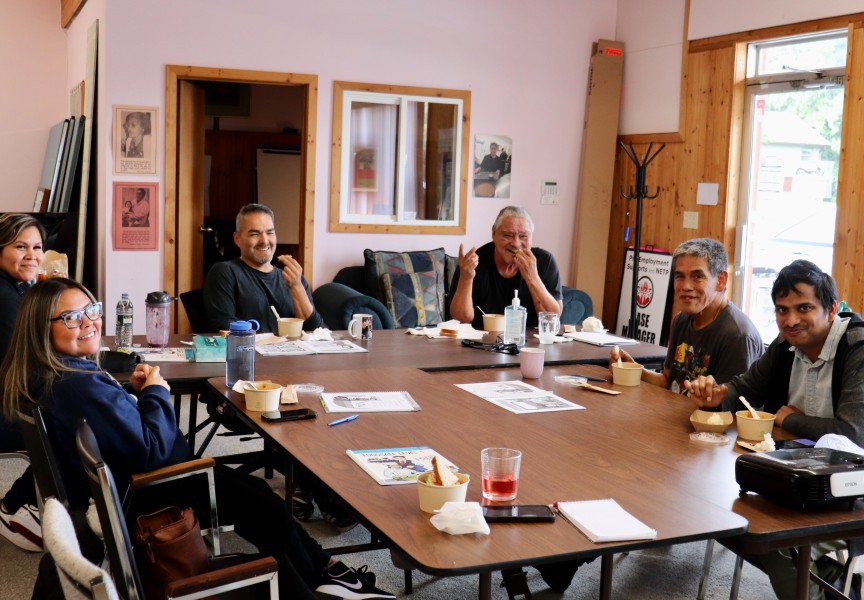The Makah promised they would take care of their 10,000 expected guests for Canoe Journeys 2010 and they did not disappoint. Hundreds of vehicles, speed boats and canoes carrying thousands of people descended on the normally quiet, small coastal village July 19, and the Makah were well prepared.
Flaggers were everywhere, directing people to camping sites, venues and parking spaces. Portable showers and toilets were located throughout the village and volunteers offered visitors rides on golf carts where roads were closed to traffic.
Earlier that morning in the neighboring community of Sekui, canoes that had been moored there over night left for the 29 km paddle to Neah Bay. Loud cheers and singing erupted as a group of canoes left for the last leg of their trip to Makah territory. Locals and tourists could be seen rushing to the marina to see the canoes off.
Dozens of canoes could be seen in the waters of Juan de Fuca Strait heading west as one drove the windy coastal highway toward Neah Bay. They trickled into the village all morning and afternoon. Locals waving color-coded flags signaled to each canoe to tell them which part of the beach they should land on. Nuu-chah-nulth canoes paddled to the woman waving a red flag.
Exhausted paddlers were greeted by dozens of people who helped haul each canoe out of the water. Once there they were given bright red bags filled with lunch, care kit items and Makah 2019 Canoe Journeys memorabilia by their Makah hosts.
Canoe families visited one another on the beach, played in the sand or sang in small groups as they waited under the blazing sun for more canoes to arrive. By 2 p.m. there were more than 80 canoes on the beach and canoe skippers were called to a first aid station for a meeting where they were given information about the grand entrance.
Jerilynn Erickson arrived that afternoon aboard a Ditidaht canoe. She said they were towed partway across the strait from Vancouver Island by their support boat and they paddled the last three hours. Erickson said she was desperate to take part in the journey.
Continued on page 11.
Continued from page 10.
“I begged for someone to take me on as a puller!” she laughed.
Well-known Tla-o-qui-aht artist Joe David roamed the beach looking for Nuu-chah-nulth canoes. He designed flags featuring whales that he was giving to each Nuu-chah-nulth group to fly in their canoes for the grand entrance.
When the meeting was over, people began moving en masse to another beach about a mile further west. Large sections of that beach were roped off to save space for the canoes and dancers. A raised stage was built in the middle of the beach where Makah dignitaries stood to greet their guests.
The beach and the main street above it were extremely crowded as more than 10,000 visitors flooded into the community that day. A section of the main street was blocked to traffic as vendors took over the street to sell anything from sushi and Indian tacos to bumper stickers and cedar bark hats. One tent was even set up as a barber shop where, for $20, the stylist would shave intricate designs on people’s scalps.
By about 3 p.m. canoes could be seen in the distance rounding the breakwater as they made their way from the first beach to the official landing site. One-by-one, in a long line, they paddled to the gathering, rowing past the beach before circling back to a staging area where they lined up behind a rope anchor.
A Makah speaker welcomed the canoe nations on behalf of their ha’wiih, saying they were glad to see them there today. They thanked them for making the long journey to Neah Bay and the land of the Makah. “Welcome to Canoe Journeys 2010, the journey to the beginning of the world,” said Joe McGimpsy, referring to the official Makah slogan for this year’s journeys.
There were about a dozen Nuu-chah-nulth canoes at the Grand Entrance Ceremony. Other canoe families came from as far away as the Columbia River in Oregon and Alaska. There was also a small delegation from Greenland.
Once all the canoes were lined up and facing the beach, four headdress dancers began dancing atop the stage, loud explosions from fireworks could be heard as they danced. Then the Makah hosts blessed the event with a prayer chant.
About 100 female Makah dancers, who were standing behind the stage, passed under it, emerging through a door at the front of the stage and lined the shore where they welcomed their guests with a dance.
Maria Parker Pasqua made her welcome speech in the language of the Makah. Michael Lawrence translated her speech to English. He said, “I am honored for your presence and I am honored and proud to host Tribal Journeys 2010, journey to the beginning of the world!”
The crowd was told that the tribe had suffered great losses, but community leaders met with the grieving family who directed them to carry on with the festivities and to make Makah people proud, “and that’s what we’re gonna do,” he declared.
Lawrence told the people that the Makah has long been rich in culture and they continued to practice their ways even when the government tried to make them stop.
“As our guest, you will be taken care of as we would take care of one of our own. These are part of our teachings and customs that have been passed down for generations and continue to be taught to the next generation,” he told his guests.
“We honor your songs and dances, welcome…share a meal with us, we are proud to host the ever growing tribal journeys. kleco, kleco!” said Lawrence.
Canoes were then introduced and officially welcomed ashore one by one, and were cheered by the thousands of people waiting on the beach. A canoe family dinner was offered at the school gym later that night.
Protocol events began the following morning. Canoe families and first nations’ guests received a scheduled time slot to share stories, songs and dances. There were so many, at least 50 families scheduled to perform, that the roster was filled from 10 a.m. to midnight every day for the next five days.
Alaska and Greenland were among the first to show their culture in the great tent. The tent was huge, likely able to seat 1,000 people. It was equipped with a sound system and stage lighting.
A young Alaskan speaker talked about climate change and how it affects their lives.
“It’s changed salmon habitat for the worse; we are losing land due to rising water and we’ve had to move our entire village,” she said.
The small group from Greenland shared their songs and dances, a unique blend of polka and traditional singing. The speaker said early European whalers came to their communities, bringing with them their polka songs, which they’ve since incorporated into their culture.
The festivities went on until Saturday with most families arriving back home the following day.
By Denise Titian



